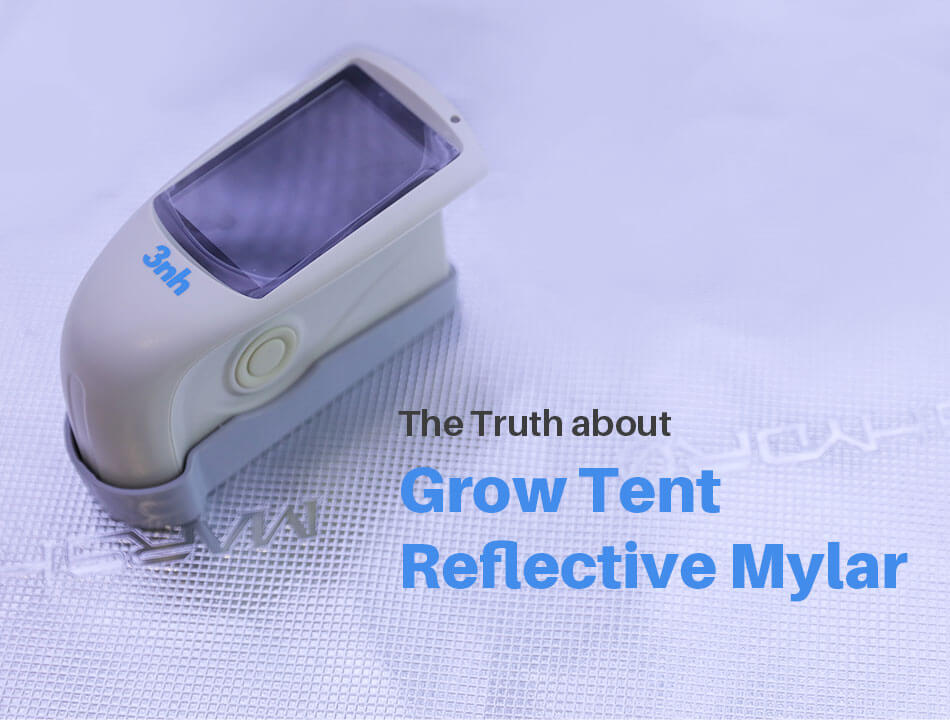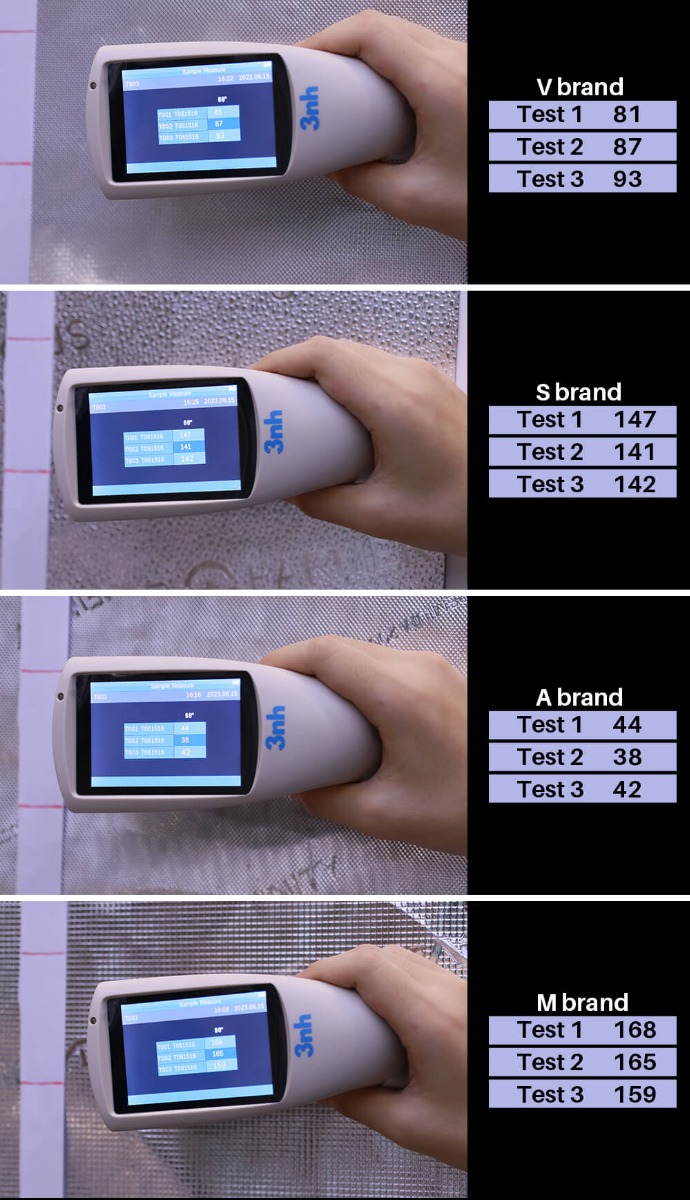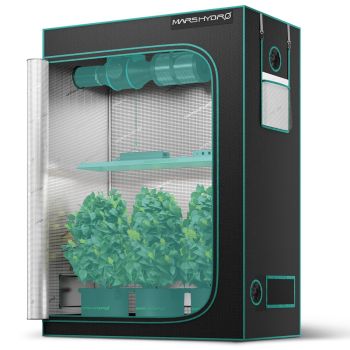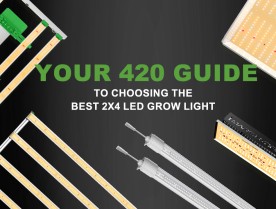
When it comes to grow tents, not all reflective mylar is created equal. The quality and effectiveness of the reflective material can significantly impact the amount of light that reaches your plants, ultimately influencing their overall health and productivity. Among the sea of grow tents on the market, which grow tent is built with the best reflective materials?
In this blog, we're going to test the reflectivity of 4 of the most popular grow tents to provide you with insightful comparisons and help you make an informed decision about the reflective mylar of the grow tents.
The Significance of Reflective Mylar in Indoor Growing
Reflective mylar, also known as reflective film or reflective sheeting, is a specialized reflective material commonly used in indoor gardening setups, particularly in grow tents. It is made from a highly reflective polyester film that has been coated with a thin layer of metal, usually aluminum. This coating gives the mylar its mirror-like properties, allowing it to efficiently reflect light.
Reflective mylar is specifically designed to maximize the utilization of artificial light sources, such as grow lights, by redirecting and intensifying the light within the growing space. When installed inside a grow tent, the reflective mylar acts as a surface that bounces and reflects light back onto the plants and evenly diffuses the light throughout the growing area from multiple angles.
By creating a more uniform light distribution, reflective mylar minimizes shading and provides more balanced coverage, allowing plants to receive light from all directions, so to enhance light availability (up to 30% increase), prevent light wastage, and reduce the risk of hotspots and heat radiation.
It is an important part of professional indoor gardening due to its effectiveness in increasing light efficiency, promoting better plant growth, and ultimately maximizing yields.
Gloss Meter: A Key Tool for Assessing Reflective Efficiency

Agloss meter (also gloss meter) is an instrument that is used to measure the specular reflection (gloss) of a surface, including reflective mylar used in indoor growing setups. Gloss is determined by projecting a beam of light at a fixed intensity and angle onto a surface and measuring the amount of reflected light at an equal but opposite angle. some of the light penetrates the surface material
When it comes to grow tent reflective material, the gloss meter plays a crucial role in determining its reflective effectiveness. By measuring the amount of light reflected off the mylar's surface and quantifying its gloss level, growers can obtain precise data on the material's reflective capabilities. This information allows them to compare different mylar products and assess their suitability for maximizing light reflection in their grow tents.
Understanding Gloss Units
The gloss meter utilizes a measurement scale known as Gloss Units (GU). This scale is based on a meticulously polished reference black glass standard with a well-defined refractive index that exhibits a specular reflectance of 100 GU at the specified angle.
By using this standard, the gloss meter establishes a calibration point of 100 as the upper limit, while 0 represents the lower limit on a perfectly matte surface. This scaling system is suitable for most non-metallic coatings and materials like paints and plastics, as they typically fall within this range. However, materials with a highly reflective appearance such as mirrors, plated or raw metal components, can achieve higher gloss values, surpassing 1000 Gloss Units and reaching up to 2000 Gloss Units.
That says, at a fixed angle, the larger the gloss unit, the greater the amount of light reflected by the material, and the higher its gloss.
Gloss Test of Top 4 Grow Tent Mylars
Mars Hydro conducted a gloss test to evaluate the reflective mylars of 4 of the most popular grow tent brands. All the reflective materials will be tested at the 60° condition of the gloss meter. And to ensure accuracy, each tester underwent 3 separate tests, minimizing the potential for factors that could lead to inaccuracies.
Before testing the mylars, a reference object was examined: the wall in the growing room, which was painted matte white. The gloss measurement of the wall yielded the following result:

Then we invited the four testers:
- The first tester belonged to the "V" brand, featuring a silver mylar with a small diamond pattern.
- The second tester represented the "S" brand, utilizing a silver mylar with a dot pattern of varying sizes, often referred to as a raindrop pattern.
- The third tester was from the "A" brand, employing a silver mylar with a small diamond pattern and a shallower border.
- Finally, the last test was conducted on the mylar from the "M" brand, which incorporated a bigger diamond square pattern with a deep border.
The gloss test results for the four testers are as follows:

Based on the results tested, the following can be concluded and inferred:
- The "A" brand performs the worst among the four brands. Its reflective mylar shows a similar performance to the matt white paint, indicating its ineffectiveness in reflecting light within grow tents.
- The "V" brand is slightly better than the "A" brand but remains ordinary in terms of reflectivity. It offers a moderate level of reflection compared to the other brands.
- The "S" brand demonstrates high reflectivity. Its reflective material, featuring a raindrop pattern, performs significantly better than the previous two brands, indicating the effectiveness of this pattern in enhancing reflection.
- The "M" brand outperforms all the other brands. It achieved the highest gloss units in the test, showcasing the effectiveness of its bigger diamond square pattern. This suggests that the reflective material used by the "M" brand is superior and provides exceptional reflectivity.
The results also suggest that the higher reflectivity of the "M" and "S" brands may not solely be due to the patterns on their silver mylar. It is possible that these brands utilize better reflective materials (as some materials may absorb light) or employ other factors to enhance their reflectivity.
Based on these findings, if growers prioritize excellent reflectivity for their grow tents, the "M" brand is the most recommended choice among the four tested brands.
The Most Effective Reflective Mylar For Your Garden

In conclusion, choosing the most effective reflective mylar for your garden is crucial for optimizing your indoor growing environment.
The reflective mylar plays a significant role in maximizing light utilization, ensuring uniform light distribution, and promoting healthy plant growth. Based on the gloss test results, the "M" brand stood out as the top performer, exhibiting exceptional reflectivity with its diamond square pattern. Close behind was the "S" brand, which demonstrated high reflectivity with its raindrop pattern. These brands offer superior options for growers seeking maximum light reflection. However, it's essential to consider other factors such as durability, heat resistance, and light diffusion when selecting reflective mylar for your grow tent.
By making an informed decision and choosing the most effective reflective mylar, you can create an optimized growing environment, leading to healthier plants, improved yields, and ultimately, greater gardening success. Remember to assess your specific requirements and preferences to find the perfect reflective mylar that aligns with your indoor gardening goals.
Mars Hydro Best Reflective Materials
Here, we're happy to highlight that Mars Hydro is the "M" brand mentioned in the test. While this may raise suspicions about the authenticity of the results, rest assured that the test is genuine. We, at Mars Hydro, were equally amazed to discover that Mars Hydro grow tent reflective mylar outperformed the others in the gloss test. This outcome further reaffirms our commitment to consistency and reliability in product quality and material selection. As growers ourselves, we build and design products that we personally use and trust. Our goal is to provide you with the very best, and the results of this test validate our dedication to delivering superior products that meet your needs.











